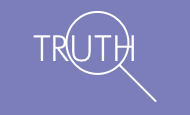Press Release:
EU Court decision highlights EUs impunity for non-transparency
European Court of Justice rules on NGO Monitor petition without any hearing
Jerusalem – In a decision concerning a petition brought by Jerusalem-based research institute NGO Monitor, the European Union Court of Justice confirmed that the EU fails to act transparently in its funding of non-government organization (NGOs). The Court’s decision, issued November 27, 2012, permitted these secret procedures, in violation of transparency and democracy norms, said NGO Monitor.
“For over a decade, the EU has acted with impunity in funding political advocacy NGOs with near total secrecy,” said Prof. Gerald Steinberg, president of NGO Monitor. “Throughout, EU officials have attempted to justify the intense secrecy by using exaggerated claims of ‘public security’ and ‘commercial interest.’ The only reasonable conclusion is that the EU has something to hide.”
In October 2008, based on the EU’s freedom of information laws, NGO Monitor requested documents from the European Commission related to decision making for and evaluations of funding of Israeli political advocacy NGOs. The EU repeatedly avoided responding in a timely manner to NGO Monitor’s requests, and when it did send materials to NGO Monitor, they were heavily redacted and sanitized of all relevant information. After thirteen months of obfuscation by the EU, NGO Monitor petitioned the court in January 2010 under the European freedom of information laws in an attempt to achieve a semblance of accountability on these issues. NGO Monitor was represented in the case by Asserson Law Offices.
“The court’s ruling found that the EU did not provide the documents in a timely fashion and that this ‘must be regarded as an implicit decision to refuse access,’” Steinberg continued. “Moreover, in its filings to the court, the EU also admitted that officials had censored the meaningful details, including ‘the conclusions of the monitoring’ and ‘the conclusions of the audit[s],’ as well as ‘additional remarks’ made by evaluators. In other words, the EU was blocking independent evaluation of its NGO funding decisions, and preventing the public from knowing whether its practices are consistent with professional norms.”
Despite these findings and admissions, between January 2010 and November 2012, the Court failed to hold any hearings on NGO Monitor’s petition, and issued a decision without providing NGO Monitor any opportunity to appear before the Court, apparently in support of the effort to prevent publication of the protocols and evaluations.
NGO Monitor notes that EU funding, amounting to millions of euros annually, has gone to a small fringe of highly politicized groups, such as Adalah, Israeli Committee Against House Demolitions (ICAHD), Mossawa, Machsom Watch, Physicians for Human Rights-Israel (PHR-I), and Public Committee Against Torture in Israel (PCATI). An EU protocol from 1999, which was separately leaked to the public, showed blatant and purposeful manipulation of Israeli democratic processes.
“In addition to violating basic principles of transparency in government, this secret funding for Israeli NGOs grossly infringes on and seeks to manipulate the Israeli democratic process,” said Steinberg. “While NGO Monitor will continue to seek the relevant documents and protocols of meetings in order to provide the missing transparency and to ensure that checks and balances are applied, we note that the main point has been acknowledged by the proceedings. Members of European Parliament, European citizens, the media, and Israeli citizens whose lives are affected directly by this irresponsible practice are now very aware of the issues and their consequences.”
For more information on NGO Monitor’s case, click here

